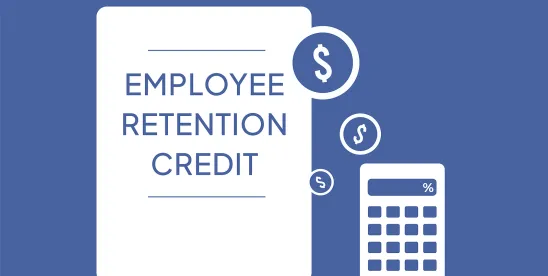On June 20, the Internal Revenue Service issued a news release regarding the status of over one million pending employee retention credit (ERC) refund claims filed before Sept. 14, 2023, when it announced a moratorium on processing new ERC claims so that it could more closely review the backlog of pre-moratorium claims already filed.
The IRS will process those pre-moratorium ERC claims that it determined had low risk of being ineligible, somewhere between 10% and 20%. The IRS estimated these low-risk pre-moratorium refund claims would be paid in the next few months.
However, the agency also said it found the remaining 80 to 90% of the pending pre-moratorium ERC claims had a high risk of being ineligible, and that between 10% to 20% of these high-risk refund claims would be denied outright. The remaining 60% to 70% of the high-risk pre-moratorium claims will be subject to further verification, including a potential examination. This amounts to an aggregate of 70% to 90% of all pending pre-moratorium claims being either denied or examined. According to the release, tens of thousands of refund denial letters will be going out in the coming weeks.
The ERC was a pandemic-era tax incentive for businesses to retain employees. It applied to wages paid from March 13, 2020, to Sept. 30, 2021, if a company’s business operations were partially or fully suspended due to a COVID-19-related governmental order, or the business experienced a significant decline in gross receipts. The initial ERC program, which applied only in 2020, was often overlooked, because the original law did not allow the credit if a business received a Paycheck Protection Program (PPP) loan, and the $5,000 per employee ERC refund for 2020 was typically less than could be received from a PPP loan.
However, later amendments to the ERC law removed the PPP loan barrier and increased the value of the ERC program to $21,000 per employee for 2021, resulting in consulting firms aggressively marketing the ERC. Many of these consulting firms took strong positions, and according to the IRS, resulted in a flood of improper ERC claims, which was why the agency instituted the processing moratorium.
For companies with pending pre-moratorium claims, the IRS will contact them when a decision has been made to deny, examine, or pay the refund, and they should not call for a status report. As for ERC refund claims filed after the September 2023 moratorium, the IRS will continue to hold these post-moratorium claims on the back burner in order to focus resources on clearing the backlog of pre-moratorium claims.
According to the release, one reason for continuing the moratorium on processing new claims is to discourage consulting firms from flooding the IRS with a new wave of questionable ERC refund claims. But the IRS also said it would be working with Congress to pass legislation to quell improper claims, including a shortening of the period to file refund claims for wages paid in 2021, for which the deadline under the current law is April 15, 2025. In January 2024, the House passed H.R. 7024, which would retroactively shorten this filing deadline for claims filed after Jan. 31. 2024, and this bill is awaiting action in the Senate.
Considering the dramatic percentage of pending ERC refund claims that the agency indicates might be examined, taxpayers with pending claims should be prepared to respond to IRS inquiries. One prime area of review likely will be those ERC claims that relied on COVID-19-related governmental orders that partially suspended business operations. Those taxpayers should be ready to demonstrate that the modifications to business operations that were required to comply with the governmental order reduced their ability to provide goods and services to customers by 10% or more.
The IRS’s initiative to block issuing improper ERC refunds on pending claims may be followed by a robust audit program to claw back ERC refunds that have already been paid. Under the current statute of limitations for a clawback, the period for the IRS to audit remains open for many ERC refunds, depending on when the claim was filed or when the refund was paid. The prospect of legislation to extend the statute of limitations for an IRS audit of ERC refunds would potentially extend the audit period for many years. As a result, some taxpayers who received their ERC refunds may not be out of the woods.
Furthermore, taxpayers in the 10% to 20% group of low-risk pre-moratorium claims that the IRS said it would begin paying out would also be subject to an audit, so they should retain their records to be able to prove they were eligible to claim the credit.
The IRS release also reminds taxpayers that its program to withdraw ERC claims remains in effect, so if a taxpayer is concerned that its pending claim might be improper, they may want to consider this withdrawal program. The IRS also states that it might announce a second amnesty program to allow taxpayers who may have improperly received ERC refunds to repay the refund and have penalties (and possibly interest) waived. However, the IRS notes that any future amnesty will not be as generous as its initial ERC amnesty program, which expired March 22, 2024.
The IRS has had many robust enforcement initiatives for various abusive tax techniques, but few, if any, appear to match the enthusiasm and resources it is dedicating to enforcement of improper ERC refund claims. Taxpayers who may have filed or received improper claims should be prepared to hear from the agency. In the past, many taxpayers played the audit lottery when taking aggressive tax positions, but in this case, considering the high level of review of pending ERC claims announced by the IRS, playing this audit lottery might be more akin to betting either red or black on a roulette wheel. Those who are uncertain as to the viability of a pending ERC refund claim, or a refund already received, should consider reaching out to a trusted tax professional.



 />i
/>i
